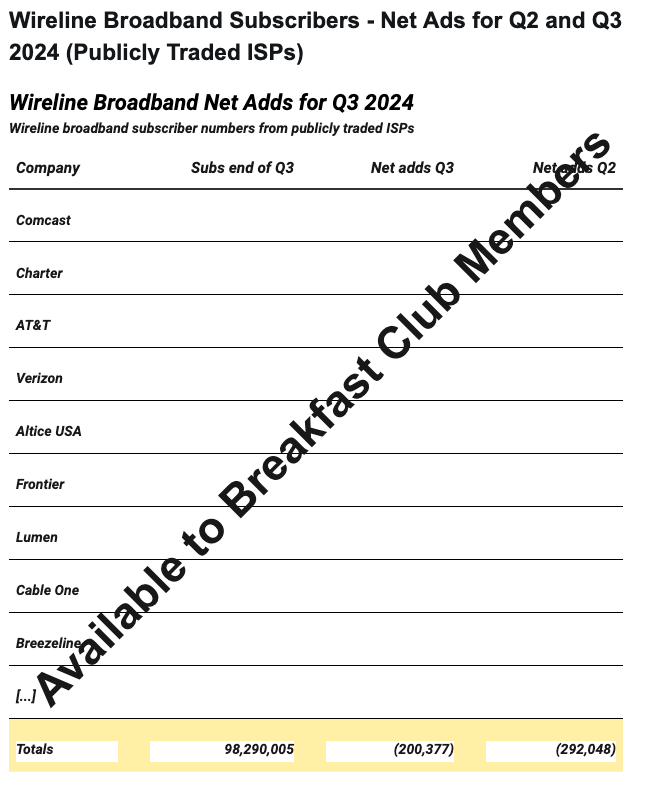Charter Broadband Losses Better Than Expected
The company said it would have reported positive gains if not for ACP impact.
Jake Neenan

WASHINGTON, Nov. 1, 2024 – Charter would have returned to net broadband subscriber growth in the third quarter if not for the shut down of the Affordable Connectivity Program, executives said Friday.

“Were it not for the impact of the end of the ACP program in June, we would have grown our internet customers in the third quarter,” Charter CEO Chris Winfrey said on the company’s earnings call.
Charter saw a net loss of 113,000 broadband subscribers in the quarter, but CFO Jessica Fischer said the company estimated 200,000 total losses as a result of the ACP ending. More than half of those were from nonpayments, with the rest being mostly voluntary disconnections.
Like other cable companies, Charter had been losing broadband customers this year. The reported losses Friday were much better than analysts had expected, though, with Wall Street forecasting about 274,000 lost subscribers. Comcast also reported that it would have returned to positive subscriber growth if not for ACP impact.
The program provided $30 per month towards low-income households’ broadband bills. It counted more than 23 million participants before running out of cash.
The cable losses have been driven in part by wireless carriers offering home internet on excess 5G capacity. Winfrey maintained that “cell phone companies will face challenges as customer bandwidth demands continue to grow.” The major carriers continued to add fixed wireless customers in the last quarter and set higher long-term goals, but the additions have started leveling off.
Winfrey also said the month-long work stoppage at AT&T in nine southeast states helped its third quarter subscriber numbers. AT&T said the strike lowered its net additions in the quarter by an estimated 50,000.
MoffettNathanson analyst Craig Moffett wrote in an investor note after the call that Q3 “almost certainly” represented the bottom Charter’s broadband losses.
“To be sure, that’s not to say that broadband subscribers will now start to grow again,” he wrote. “But the losses will be smaller going forward now that the worst of the ACP impact has been felt. The competitive headwinds from [fixed wireless] and [fiber] have likely also peaked and are beginning to abate, even if only slightly so.”
The company finished the quarter with more than 58 million passings and about 30 million broadband subscribers. Charter also added 545,000 mobile subscribers for a total of 9.3 million.
BEAD and rural passings
Fischer said the company expects that its spending in the Broadband Equity, Access, and Deployment program will be substantially less than its spending in a separate FCC subsidy. The company spent $577 million on subsidized rural line extensions, which includes other grant programs, in the third quarter, for a total of $1.5 billion this year.
“That lower outlook reflects the most recent broadband map updates in terms of available, unserved passings near our network, and the less favorable rules framework in BEAD,” she said.
The company built out to 114,000 subsidized locations in the third quarter, for a total of 381,000 over the last year. Charter’s planning on getting close to 400,000 new passings by the end of 2024, down from its initial plan of 450,000 because of construction labor shifting to rebuild areas hit by recent hurricanes.
Charter has a total of 696,000 subsidized passings in rural areas.










Member discussion